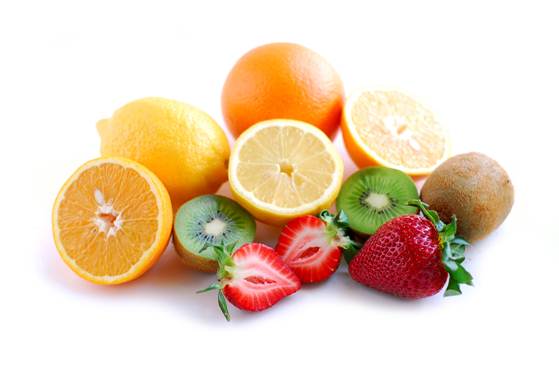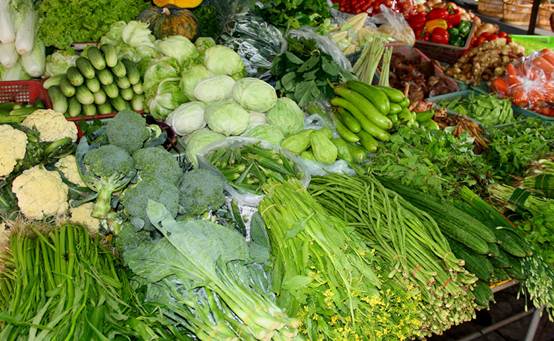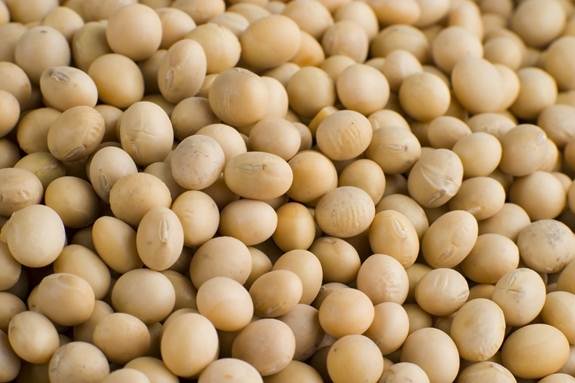Prostate gland lies right under the bladders in the male
excretory system. By the time males get older, the gland gets bigger and become
able to cause health issues like urination issues, benign enlargement and
cancers. Over 50% of males in the ages of 60 to 90% of people at 70s and 80s
have one kind of disease related to the prostate. Creating and maintaining a
qualified diet can bring much help in reducing some diseases like this, and
even preventing prostate cancer.
Benefits of fresh fruits

Eating fresh
fruits is very good for prostate health.
Eating fresh fruits is very good for prostate health. The
nature sugar in fruits can protect prostate. Researches are being carried out
to define the supplemental benefits of lycopene on the prostate. Lycopene is a
natural chemical compound that presents in dark-red fruits like tomatoes, water
lemon and pink grapefruit. The compound provides fruits dark red color and
strong antioxidants. Men who participated in the researches had a diet which is
rich in lycopene had less chance of prostate cancer. In a research carried in
2003 showed that 47 men who had 10 rations of tomatoes a week had their risk of
prostate cancer reduced by 50%.
Benefits of fresh vegetables

There’re many
vegetables containing lycopene, such as beets, artichokes, sweet potatoes,
carrots and turnips.
There’re many vegetables containing lycopene, such as beets,
artichokes, sweet potatoes, carrots and turnips. Some other vegetables containing
antioxidants are sulforaphane which is good at reducing inflammations, healing
injuries caused by oxidation and removing carcinogens. Broccoli, cabbages, kale
and Swiss chard are good choices among dark-green leafy vegetables containing
sulforaphane.
Benefits of fish oil and vegie oil
To make the most of lycopene in fruits and vegetables
properly, we need zinc. Zinc presents in fish and shellfish. Other sources of
zinc include pumpkins, unpeeled grilled potatoes, lean meat, yogurt and
legumes. Researches are defining the value of the selenium in bettering prostate’s
health. Selenium has positive effects on producing glutathione peroxidase, an
antioxidant that protects cells from damages caused by oxidation. Selenium can
also reduce the developments of cancer by boosting immune cells’ activities.
Fish and shellfish also have selenium, so do Brazil nuts and garlics. Vegie
butter and oil are also good choices of food.
Benefits of soy beans

Soy beans contain
flavonoid which is a compound helping our bodies manage this hormone balance.
The stability of hormones is very important to prostate
health. Soy beans contain flavonoid which is a compound helping our bodies
manage this hormone balance. Although there’re many vegie recipes having soy
beans and soy products as components, you should have soy beans in the shape of
soy beans or tofu.
Benefits of nuts and seeds
Vitamin E has anti-inflammatory effects and the ability to
fight prostate cancers. Good sources of vitamin E include egg yolk, wheat germ,
nuts and seeds. Pumpkin seeds, flax seeds, sunflower seeds and hemp seeds are
especially beneficial as they help accommodate hormones. Pistachios, almonds,
Brazil nuts and walnuts have a little content of unsaturated fats while
containing vitamin E and other protective nutrients. Foods with
anti-inflammatory effects like gingers and onions also provide good help.
Using herbs
Saw palmetto has been an important herb to treat enlarged
prostate for years. Saw palmetto has a compound that prevents the developments
of 5-alpha reductase enzymes which turn testosterone into DHT (dihydrotestosterone).
While DHT play a big role in the developments of male characteristics like
facial hair, it’s also famous for the role in developing prostate’s issues.
Using saw palmetto can minimize DHT productions at the same time, and provide
supports for the urinary apparatus and bladder.